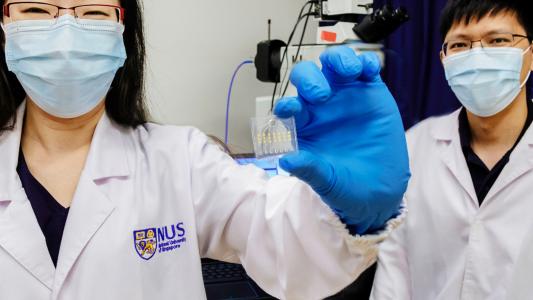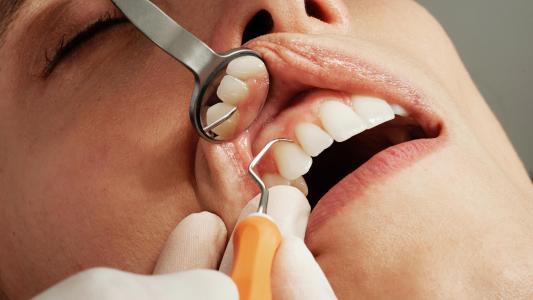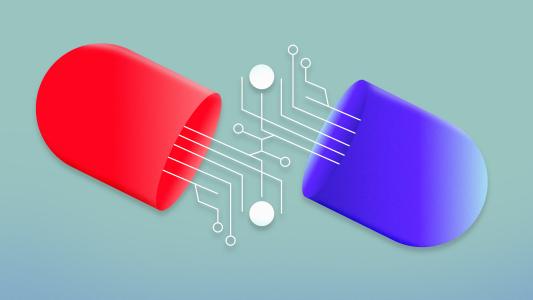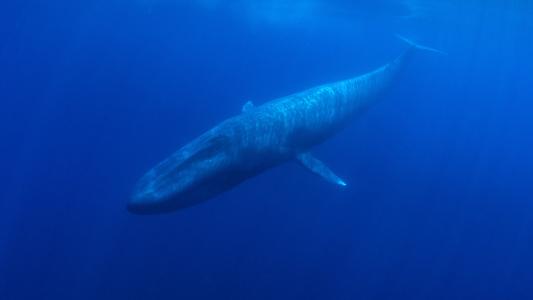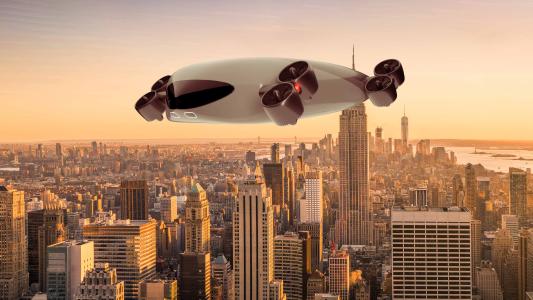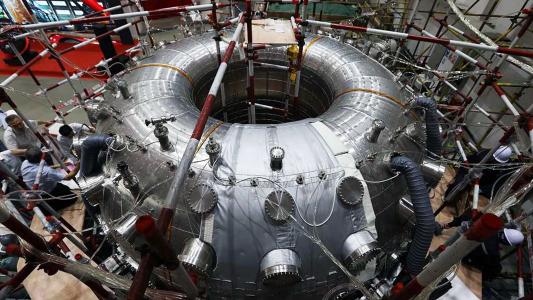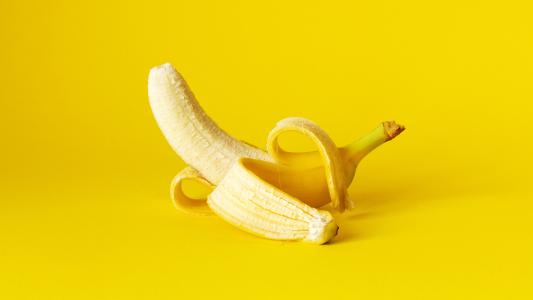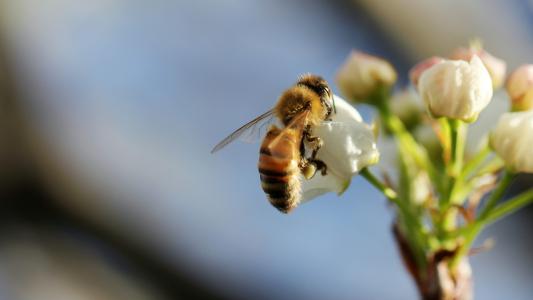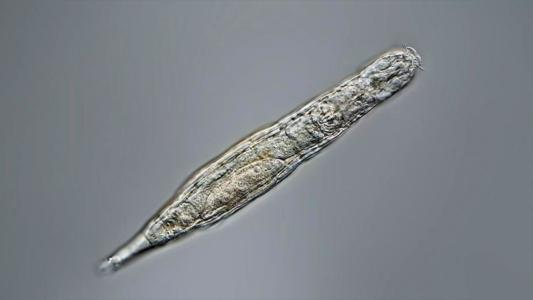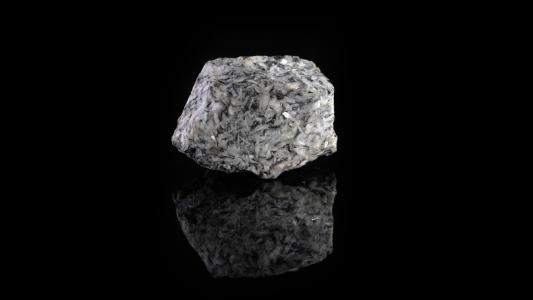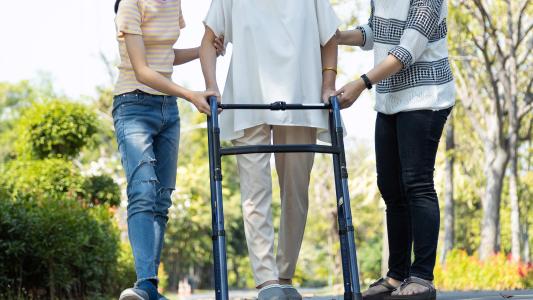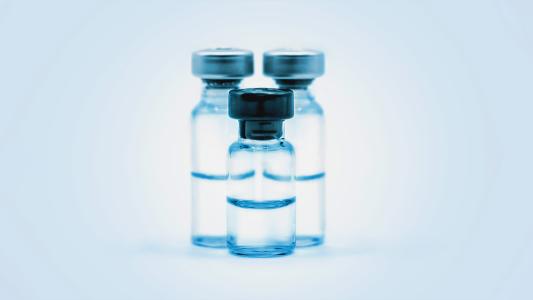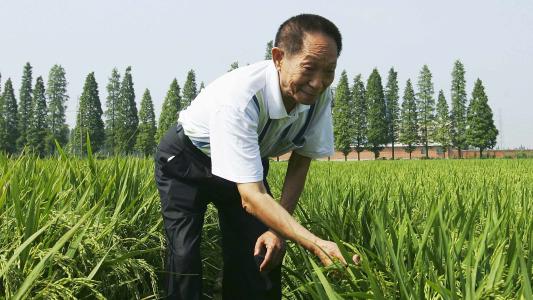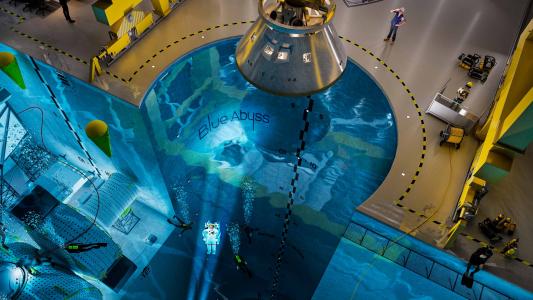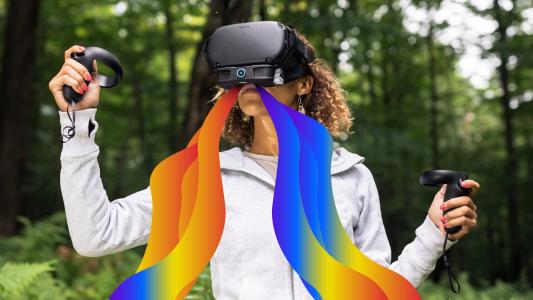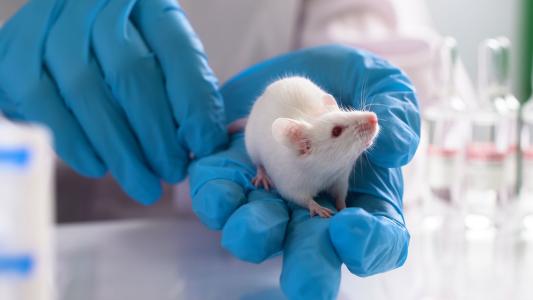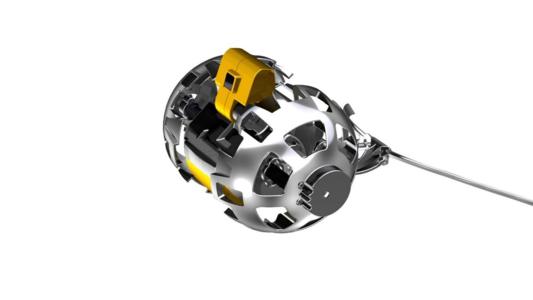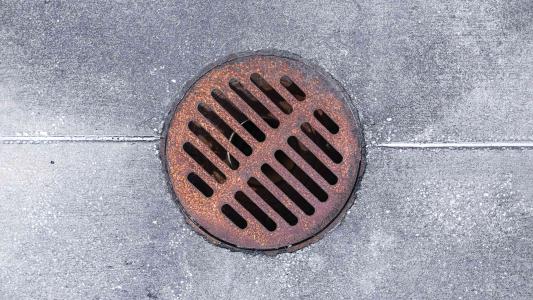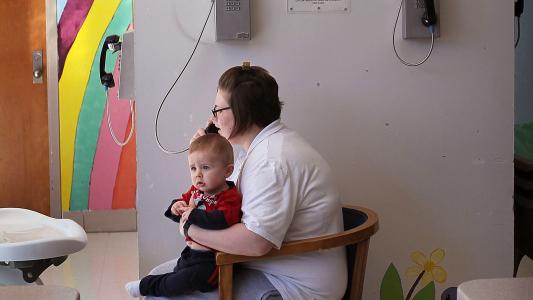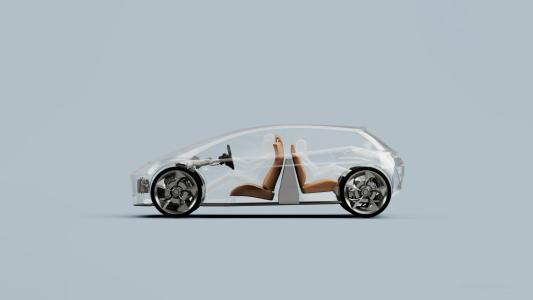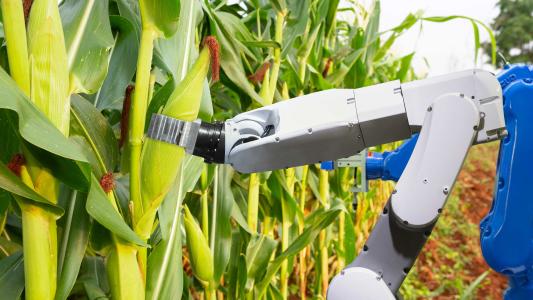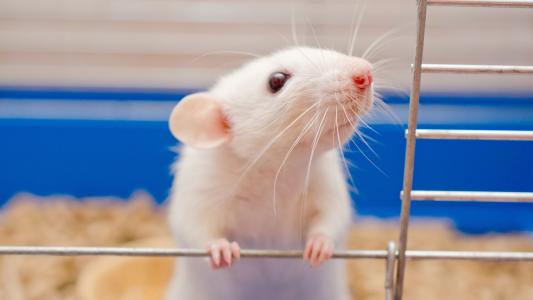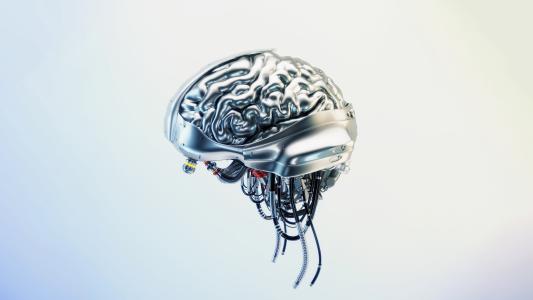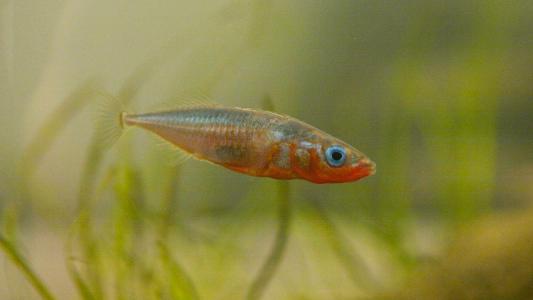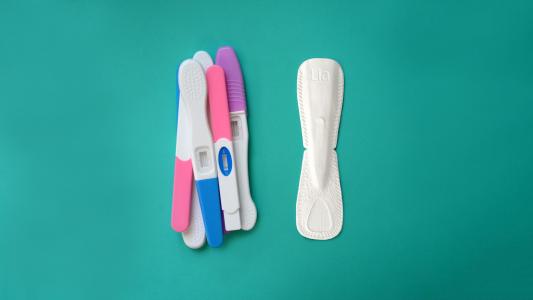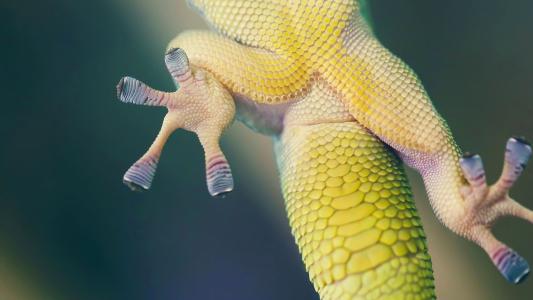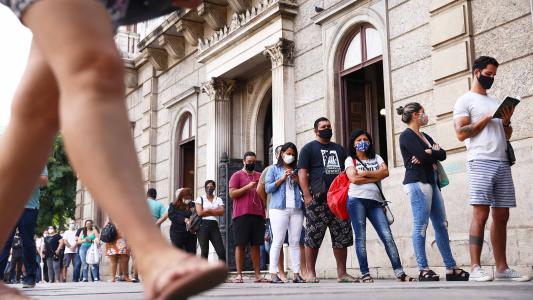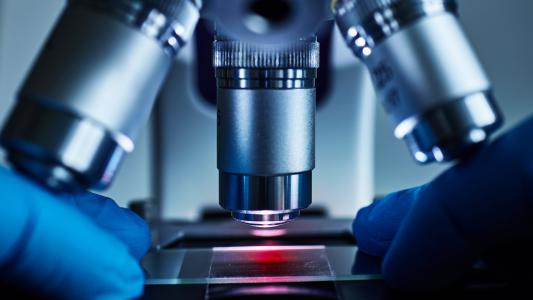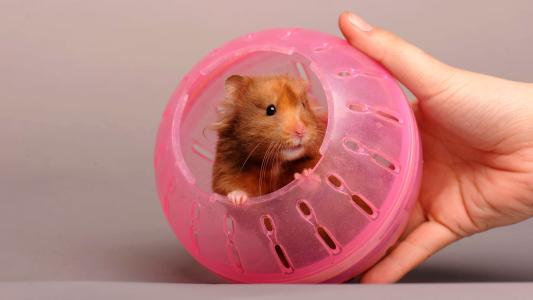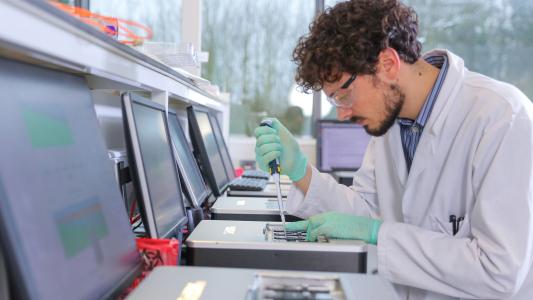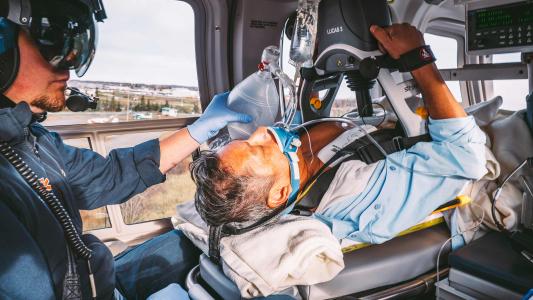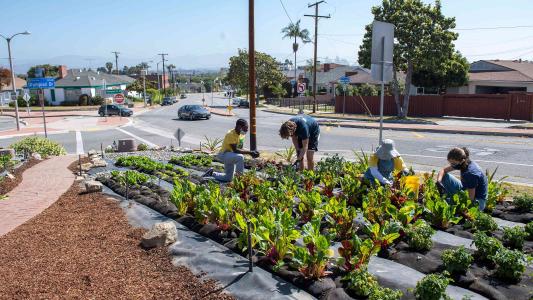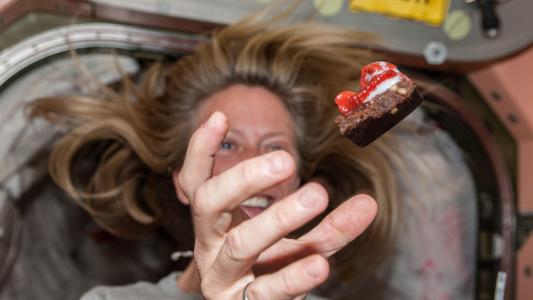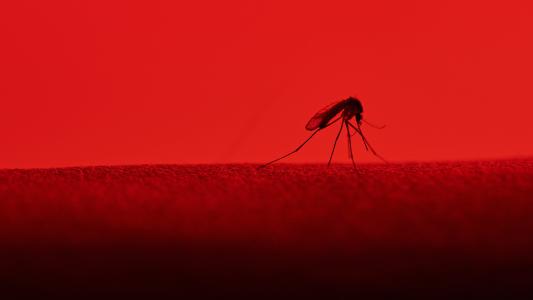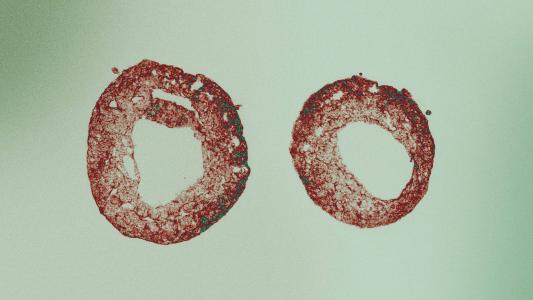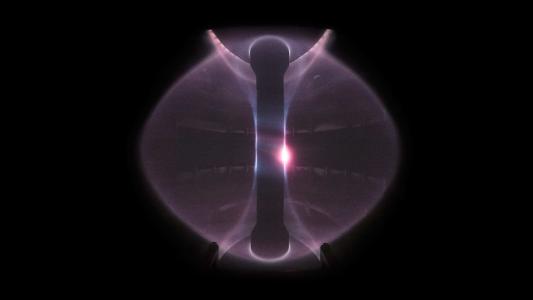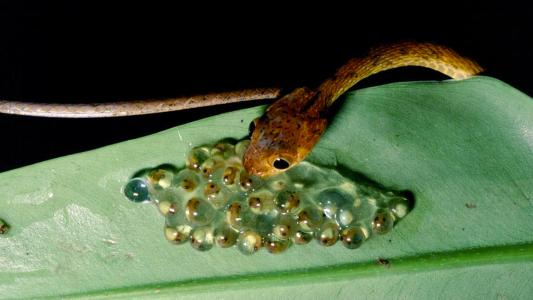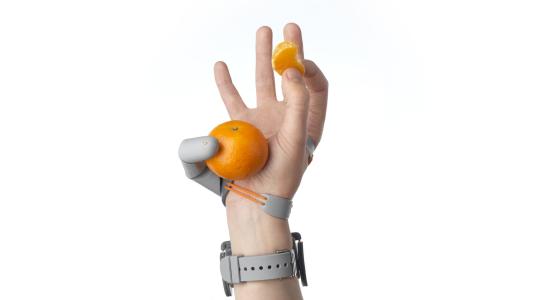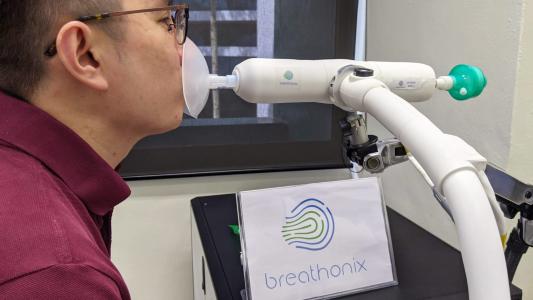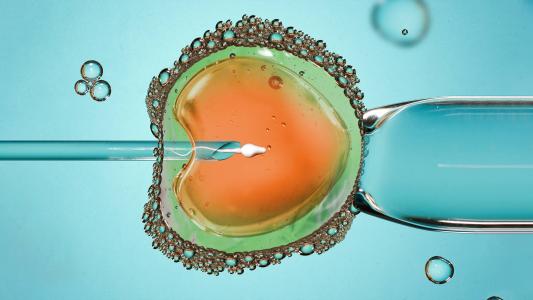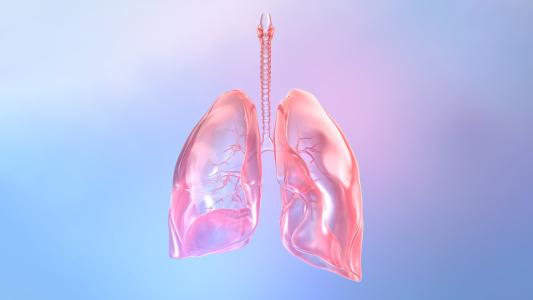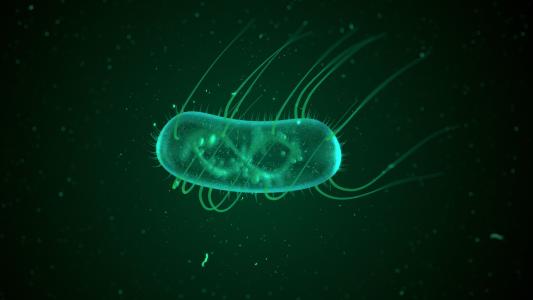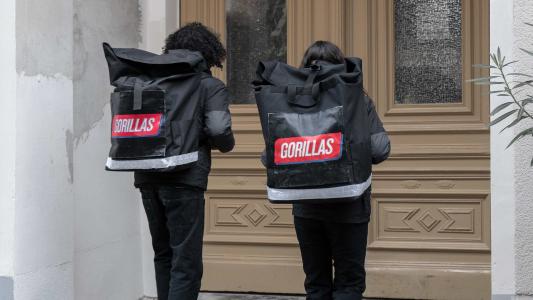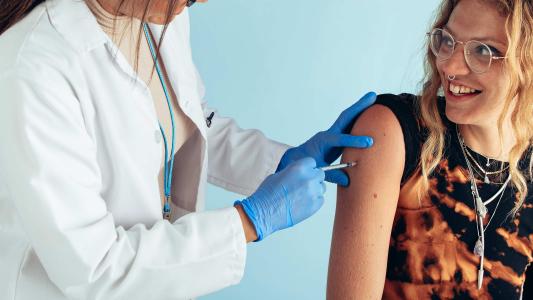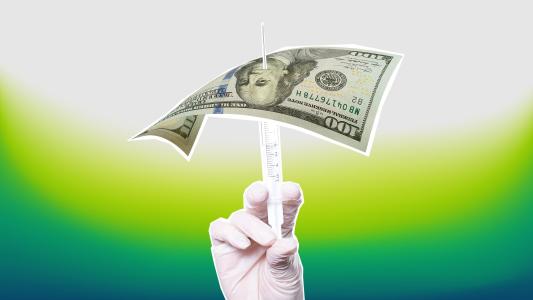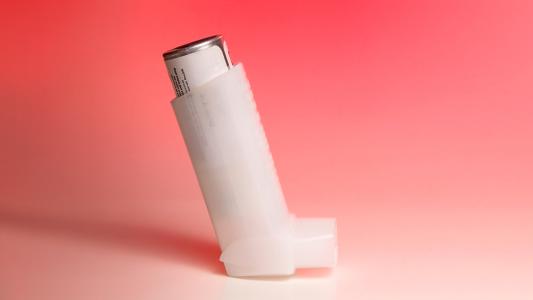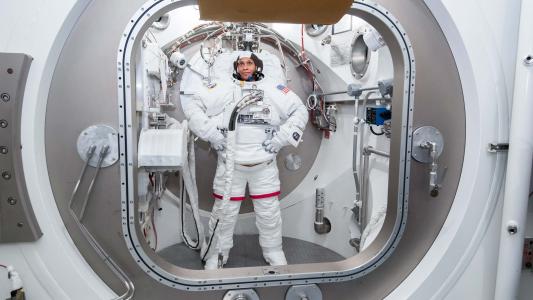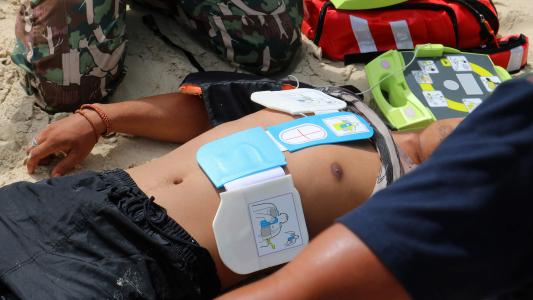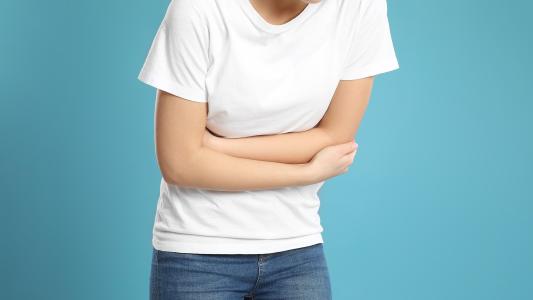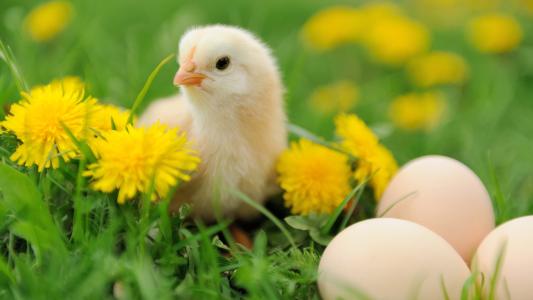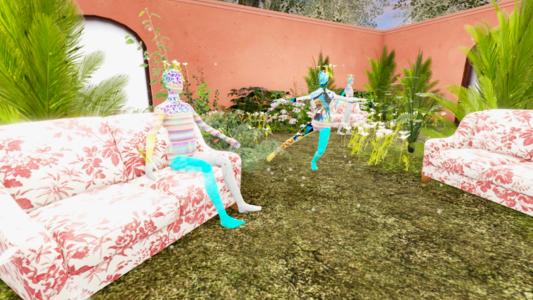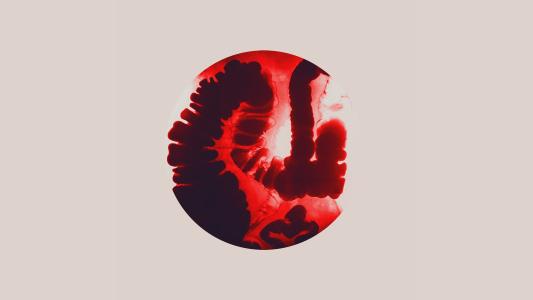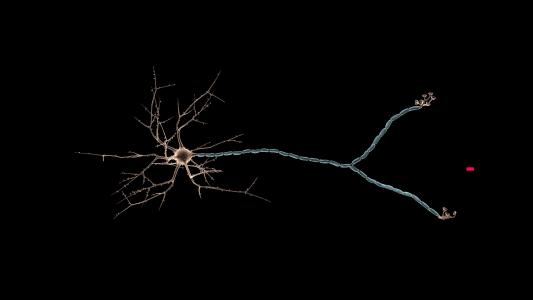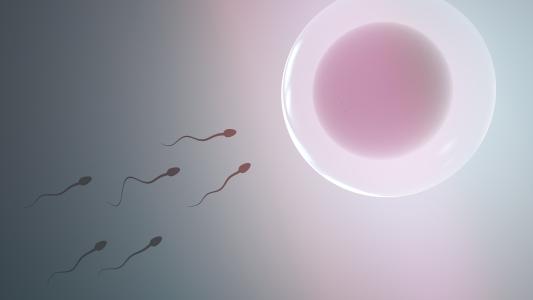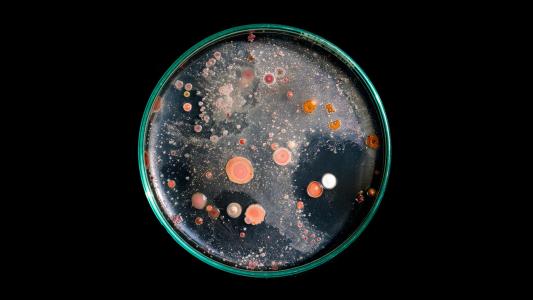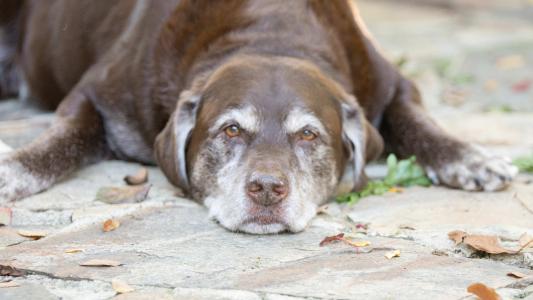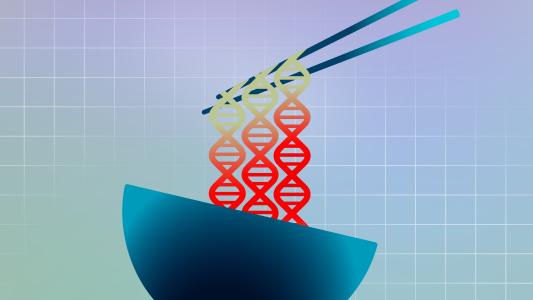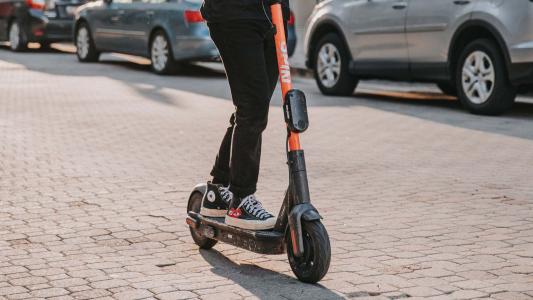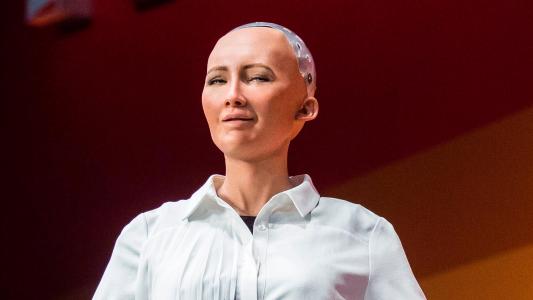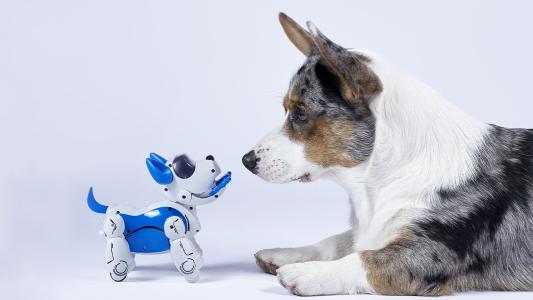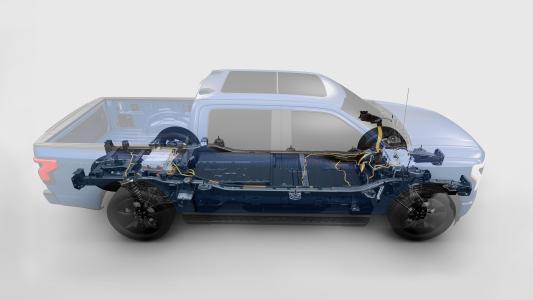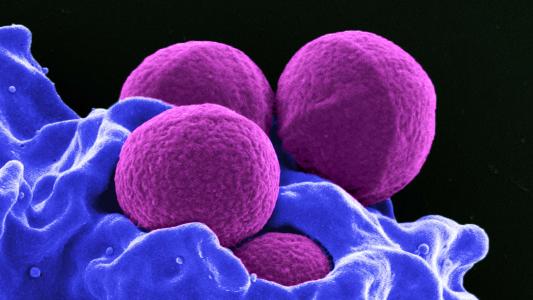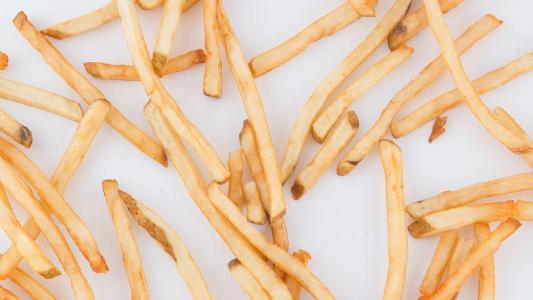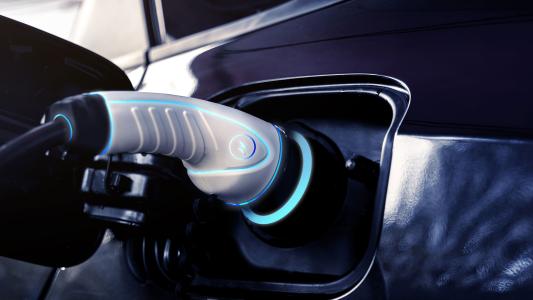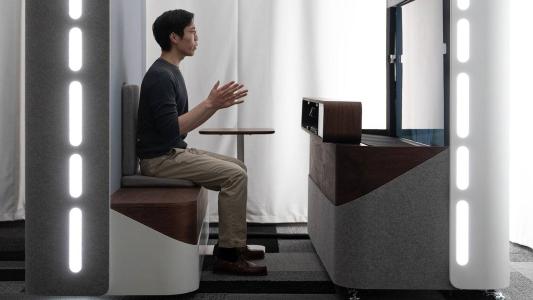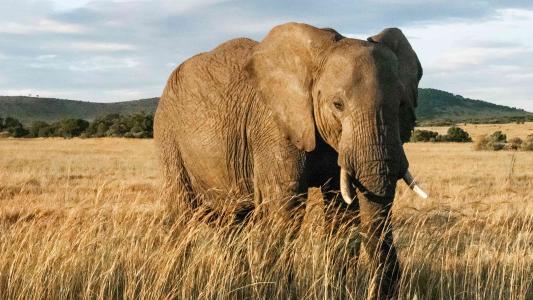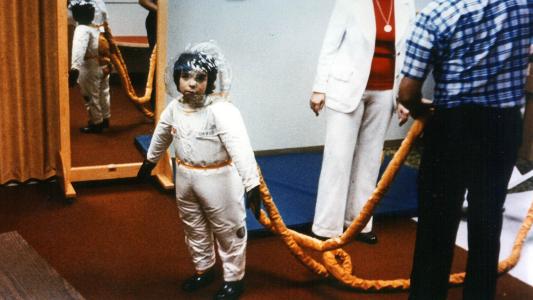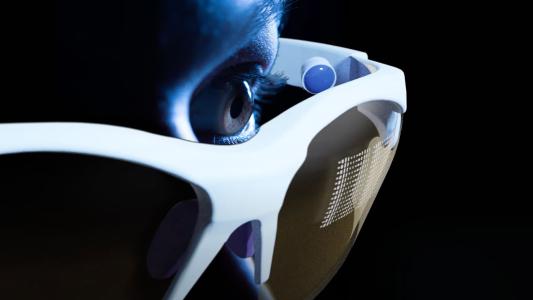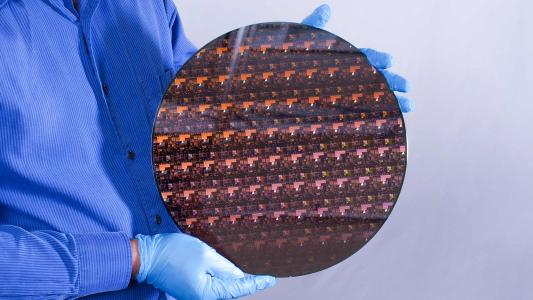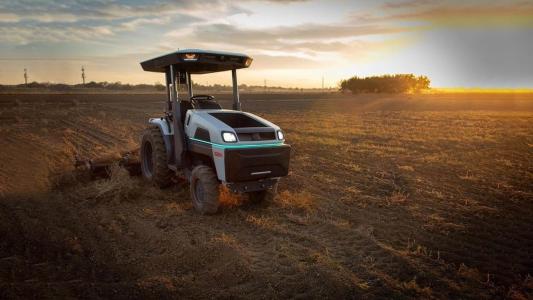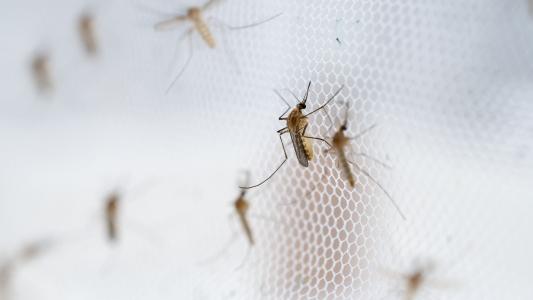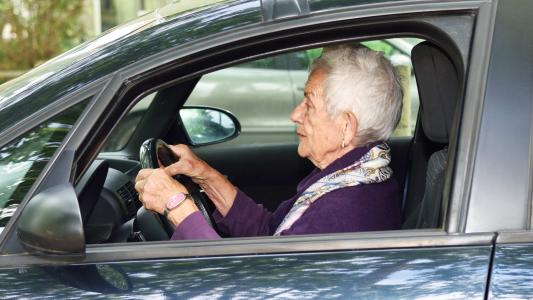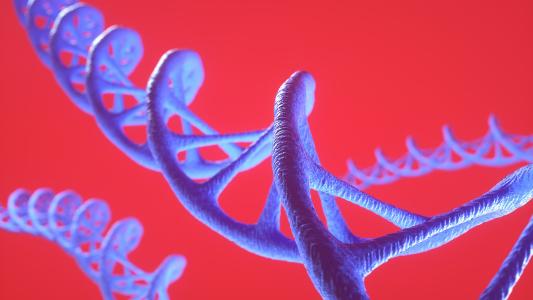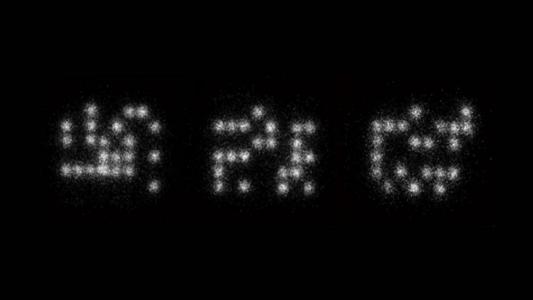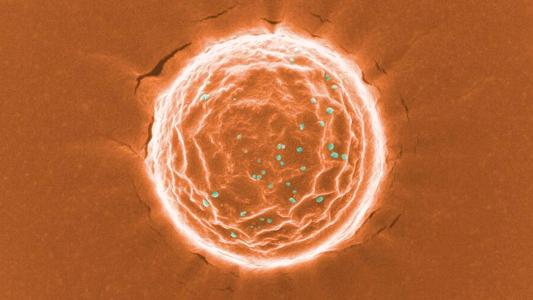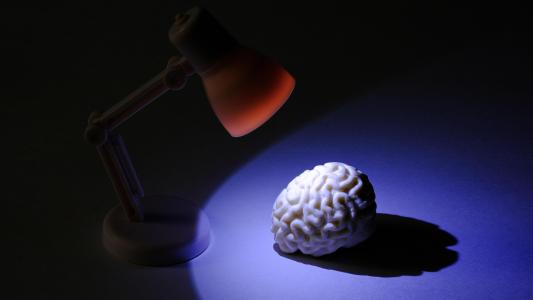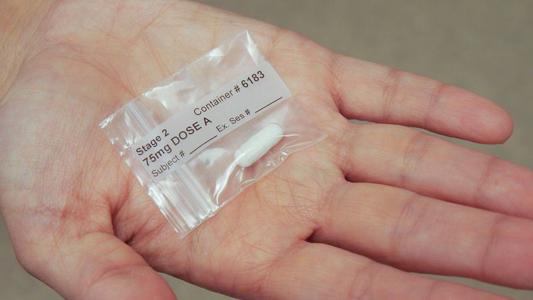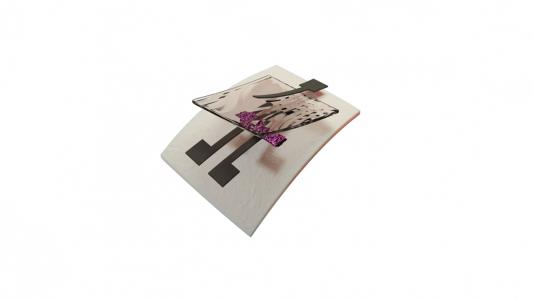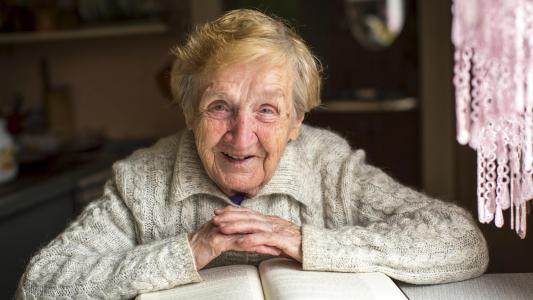Blood test can quickly tell if a targeted cancer therapy works
The ExoSCOPE blood test can determine with 95% accuracy whether a targeted cancer therapy is working within 24 hours of administration.
Want strong teeth? Eat this candy.
Researchers claim to have invented an experimental breath mint that may renew tooth enamel and strengthen teeth, and it’s already headed into human trials.
This high schooler created a drug discovery search engine
While looking for drugs to potentially fight Alzheimer’s, a high school researcher's AI did “comically” bad, until he thought of it as a search engine.
Bomb detectors record rare pygmy blue whales singing
Underwater microphones used to listen for signs of nuclear bomb testing have captured the singing of a population of rare pygmy blue whales.
Can a 40-seat drone bus get off the ground?
Startup Kelekona is developing an electric vertical takeoff and landing (eVTOL) vehicle capable of carrying 40 passengers at once.
China’s “artificial sun” sets a new record for nuclear fusion
China’s nuclear fusion reactor, the Experimental Advanced Superconducting Tokamak (EAST), has set a new world record for temperature.
Disease-resistant banana created with CRISPR
African scientists have used CRISPR to create a disease-resistant banana that is indistinguishable from unmodified plants.
Antidote saved 100% of bees from lethal pesticide
Beehives are under threat from common insecticides. But researchers created pollen-like microparticles to deliver an antidote.
Microscopic animals revived after 24,000 years in permafrost
A multicellular animal called the bdelloid rotifer has used cryptobiosis to survive in the Siberian permafrost for at least 24,000 years.
Startup plans to remove 1 billion tons of CO2 from the air
A new carbon sequestration startup plans to remove one billion tons of excess carbon from the atmosphere by 2035 using enhanced mineral weathering.
Vibrating “thimble” could improve balance in seniors
A wearable that delivers a painless vibration to a person’s fingertip if it senses postural sway could one day help improve balance in seniors.
Moderna COVID-19 vaccine 2.0: Lower dose, fewer side effects
Any revised version of the Moderna COVID-19 vaccine will likely include a smaller dose, reducing side effects and increasing the supply of shots.
Yuan Longping: His rice helped feed the world
Scientist Yuan Longping's hybrid rice helped feed the world. His wild rice discoveries and hybrid rice inventions in the 1960s and 1970s helped alleviate food scarcity across Asia and Africa.
The world’s deepest pool will host astronaut training in the UK
U.K. company Blue Abyss has submitted plans to build a massive aquatic facility in Cornwall, England, and its centerpiece will be the world’s deepest pool.
VR aromatherapy might be coming to a headset near you
VR smell can be used to improve immersion—and possibly even mental health.
Editing one gene extends mouse life expectancy by 23%
By modifying just one gene, researchers were able to extend the life expectancy of mice by 23%, and they think their results may translate to humans.
Can a dog vaccine for Valley fever lead to a human one?
Cases of Valley fever, a fungal infection, have risen dramatically over the decade. Researchers hope a dog vaccine may lead to one for humans.
The Maldives are constructing a floating city to combat rising sea levels
Government officials of the island nation, Maldives, debuted plans to build the world's first fully floating city.
Japan’s transforming moon rover gets help from toy company
Japan is sending a transforming moon rover to the lunar surface in 2022 to collect data that will inform an upcoming crewed mission.
“Sewer heat” could help fight climate change
Denver plans to tap into the heat in sewer lines to generate clean energy.
Minnesota stops separating newborns and incarcerated mothers
The Healthy Start Act makes Minnesota the first state to stop the practice of separating incarcerated mothers from their newborns soon after delivery.
Vertical EV battery may cut costs, improve range by 30%
U.K. startup Page-Roberts proposes using a vertical EV battery to improve a car’s efficiency and cut manufacturing costs.
"Hands-free" smart farm will replace laborers with robots
At a smart farm in Australia, robots and AI will do all the manual labor, potentially foreshadowing agriculture’s "hands-free" future.
A small dose of an ibogaine-like drug cures stress in mice
A novel drug designed like ibogaine but without the ibogaine trip or toxicity has corrected the effects of stress in mice.
NASA announces first missions to Venus since the '80s
NASA has just approved two missions to Venus that will provide the scientific community with a wealth of new data on Earth’s closest planetary neighbor.
What happens when your brain imagines the future?
Research out of the University of Pennsylvania suggests imagining the future is a two-brain region job.
Genes show which animals will adapt to climate change
Some fish, such as the threespine stickleback, can respond to dramatic seasonal changes very quickly — genome sequencing reveals why.
United will buy 15 supersonic jets
United Airlines has agreed to buy 15 supersonic jets from Boom Supersonic, with plans to begin commercial flights before the end of the decade.
Colorful clouds on Mars captured in new rover pics
NASA’s Curiosity rover has captured images of colorful clouds on Mars, forming at higher altitudes and earlier in the Martian year than expected.
New pregnancy test made from paper is flushable, biodegradable
A team of women has developed a flushable, biodegradable pregnancy test, which is finally available to...
Gecko gripper could clean up space junk
The Earth is circled by a sea of space junk, and it poses a danger to satellites and astronauts. We know we should...
Mass vaccination experiment was a huge success in Brazil
A mass vaccination experiment in Brazil suggests that even a moderately effective vaccine can have a dramatic effect if enough people get the shot.
"Light-shrinking" material cranks normal microscopes up to 11
Researchers have developed a light-shrinking slide coating that allows light microscopes to image in “super-resolution.”
Inhaled nanobodies treat COVID-19 in hamsters
An inhaled nanobody treatment for COVID-19 has shown promise in animal tests and could be a more affordable alternative to monoclonal antibody drugs.
The entire human genome has (finally) been sequenced
Researchers have finally sequenced the complete human genome, filling the gaps in the Human Genome Project’s historic first draft.
Robot paramedics are bringing mechanical CPR to the UK
An English ambulance service has begun using robot paramedics to deliver mechanical CPR to patients.
Microfarm startup brings fresh produce to food desert
California startup Crop Swap LA has planted a “microfarm” in an LA resident’s front yard and is now distributing the crops throughout the local community.
Fridge for astronaut food aces first flight tests
Purdue University engineers have designed a fridge for astronaut food that could double its shelf life, potentially overcoming a barrier to longer missions.
Dengue fever vaccine still protects after three years
A dengue fever vaccine candidate by Takeda is still effective after three years in a large human study, raising hopes for fighting the virus.
New lab-grown mini hearts have a human-like beat
Researchers created the first human mini heart in the lab. The mini hearts, called cardioids, have developed distinctly beating chambers, which fire in sync.
New nuclear fusion test overcomes “exhaust problem”
The UK’s MAST Upgrade nuclear fusion experiment appears to have solved the “exhaust problem,” a major hurdle to harnessing fusion power on Earth.
Are we really addicted to technology?
Simplifying very complex things can lead to real harm.
Birds, frogs, and reptiles use sound to “program” embryos
Sound appears to play a larger role in animal development than previously thought, affecting how a variety of species prepare for life outside the womb or egg.
Remote Work Is Reversing the Brain Drain
Rural economies can now lure top talent away from big cities and affluent countries — could this be the reverse of the brain drain?
Will human augmentation move too fast for our brains?
To show how human augmentation can affect the brain, participants in a new study underwent fMRIs after learning to use a prosthetic called the "Third Thumb."
These cartographers screwed up — but their error preserved Minnesota's oldest forest
A 19th-century surveying mistake kept lumberjacks away from what is now Minnesota's largest patch of old-growth trees.
One-minute COVID-19 breath test authorized in Singapore
Singapore has provisionally authorized a COVID-19 breath test that measures VOCs to deliver accurate results in just one minute.
"Defective" embryos can actually self-correct in the womb
PGT-A, a genetic test used to screen embryos for aneuploidy prior to in vitro fertilization, appears to be excluding many viable options.
Inhaled CRISPR treatment tackles COVID-19, flu
An inhaled CRISPR treatment can be easily tweaked to attack a variety of viruses, from the one that causes the flu to the coronavirus behind COVID-19.
Liverpool and DeepMind are bringing AI to the beautiful game
AI in sports has taken off in recent years. Now, Liverpool and DeepMind are teaming up to see how AI may impact the world’s most popular sport.
Human lifespan may have a hard limit: 150 years
The human lifespan is limited to 150 years, according to a new longevity study focused on the body’s ability to bounce back from stressful events.
These bacteria grow biodegradable “Aquaplastic”
Scientists genetically modified E. coli to create a plastic called "aquaplastic," which can be transformed into a three-dimensional shape just by adding water.
10-minute grocery delivery service to debut in U.S.
German grocery delivery startup Gorillas, which delivers orders within 10 minutes, is bringing its ultra-fast operation to the U.S.
Predicting your protection against COVID-19
Australian researchers have found an immune response measurement they believe can predict protection against COVID-19.
Gene therapy and special goggles partially restore man’s vision after 40 years
Researchers have demonstrated that restoring limited vision to people suffering from retinitis pigmentosa, a historically permanent type of blindness, is within reach.
Ohio announces $1M vaccine lottery, shots surge 33%
Ohio’s vaccine lottery, which will give five vaccinated residents $1 million each, appears to have sparked the desired increase in new vaccinations.
The first steps towards an allergic asthma vaccine
French researchers have shown an allergic asthma vaccine to be effective in mice. The next step: human clinical trials.
Discovery Channel is looking for wannabe astronauts
The winner of Discovery Channel’s new astronaut competition series, “Who Wants To Be an Astronaut?” will spend eight days aboard the ISS.
Can an app save cardiac arrest victims before EMS arrives?
In Denmark, Heartrunner directs citizen responders to cardiac arrest victims. Should the U.S. adopt a similar approach?
See the most realistic simulation of star formation yet
A new simulation of star formation is the most realistic ever created, giving scientists an unprecedented opportunity to study the birth of a star.
Can new drugs make obesity a medical — not moral — condition?
Researchers are hopeful that a class of drugs called incretins will not only treat obesity, but help people think of it as a medical condition.
IBS treatment app helps patients reprogram their minds
An IBS treatment app that facilitates cognitive behavior therapy helped trial participants manage symptoms and improve their quality of life.
CRISPR could save billions of baby chicks before they hatch
Male chicks are killed as soon as they hatch, in a gruesome process called chick culling. Gene editing could save them.
Virtual Gucci and the future of digital fashion
Game platforms like Roblox point to the future of digital fashion and personal expression.
These glowing bacteria can diagnose gut problems
Using synthetic biology, a team at Rice has designed bacteria that can sense signs of inflammatory bowel disease in mice.
Experimental procedure zaps nerves to lower blood pressure
Renal denervation, a procedure that uses ultrasound pulses to zap renal nerves, showed promise as a treatment for resistant hypertension in a recent trial.
Sperm may play a bigger role in pregnancy than we thought
Sperm appear to play a bigger role in pregnancy than previously believed, not only fertilizing the egg, but also “persuading” the female body to accept it.
What it’s like to do a human challenge trial
Human challenge trials are risky, but they could help us avoid another prolonged pandemic.
Old dogs are helping scientists combat human aging
By studying donated tissues stored in a pet dog biobank, researchers have uncovered a genetic link between brain aging in canines and humans.
The DNA-based diet you’ll be hearing about everywhere
A growing field called "nutrigenomics" aims to provide people with personalized lifestyle guidance based on their DNA
How Spin is making its e-scooter service more accessible
In partnership with Ford
Spin, a micromobility provider, is using AI to help make e-scooters safer and city streets more accessible to all residents.
Meet MIT’s Kate Darling: Why we should rethink our relationship with robots
According to MIT's Kate Darling, robots are more like animals, not humans.
AI dubbing can make actors appear to speak any language
A new AI dubbing tech called TrueSync matches actors’ mouths with recorded dialogue to make watching a movie in an unknown language feel less jarring.
Ford unveils its first electric pickup truck
Ford’s first electric truck, the F-150 Lightning, has the potential to accelerate the transition to electric vehicles in the U.S.
Molecular "tweezers" pick apart bacterias' biofilm
Israeli researchers have developed a set of “molecular tweezers” that can pick apart the biofilm which protects some bacteria.
These shelf-stable French fries last 90 days at room temp
Startup Farther Farms has developed a pasteurization process that allowed it to create shelf-stable French fries that last 90 days at room temperature.
Your incentives to get the COVID-19 vaccine
If protection against a potentially deadly virus isn’t enough, there are these added incentives to get the COVID-19 vaccine.
How wonky cell phone signals help track wildfire smoke
An atmospheric oddity called a temperature inversion helped researchers discover how mobile phone signals could show the amount of bushfire smoke suffocating towns and cities.
New solid-state lithium battery can be recharged 10,000 times
Harvard University researchers have developed a solid-state lithium battery they believe could allow electric vehicles to last 10 to 15 years.
Radioactive plutonium from space found in Pacific Ocean
A rare form of plutonium has been discovered on Earth for the first time — and an exploding star appears to have helped it get here.
Google unveils “magic window” for 3D video chat
Google’s Project Starline is a new 3D video chat technology designed to make online communication feel more like real life.
This app is saving elephants from poachers
Elephant poaching is running wild in Africa. But, with the help of a smartphone app, Kenya is reviving the population.
Gene therapy appears to cure “bubble boy disease”
A new gene therapy designed to treat children with ADA-SCID, a form of “bubble boy disease,” was incredibly successful in trials.
This 'Metaform' optical device could shrink the size of AR headsets
By bridging nanophotonics and freeform optics, University of Rochester researchers hope to enable next-gen AR optics in XR wearables.
China’s Mars rover nails landing
China’s Mars rover, Zhurong, has landed on the Red Planet, making China only the second nation to successfully land a rover on Mars.
IBM's faster, more powerful microchips
IBM has unveiled the world’s first 2-nanometer microchips, a breakthrough in chip technology that could lead to faster devices that require less energy.
This genetically modified grass can clean up toxic pollution
Researchers demonstrated that genetically modified prairie grass can soak up military-grade pollution from the soil.
Ketamine infusion: What it's like and how it works
Ketamine infusion therapy takes the anesthetic from dance floors to depression clinics. But how does the drug work, and what is it like?
The world’s first fully electric, self-driving tractor
Monarch Tractor’s all-electric, self-driving tractor could save farmers money, while also benefiting the environment.
1 billion genetically modified mosquitoes will be released in the U.S.
Oxitec recently released genetically modified mosquitoes on three of the Florida Keys. The idea is that they will curb the spread of diseases by decreasing populations of Aedes aegypti.
Using machine learning to detect dementia in older drivers
Researchers build AI to predict dementia and mild cognitive impairment in older drivers based on driving data.
This new gene editing technology rivals CRISPR
Researchers find a new gene-editing technology using retrons from bacterial DNA.
A “Lite-Brite” for DNA data storage
A new method for DNA data storage uses light-emitting strands of DNA to encode digital messages, eliminating the need for sequencing.
These "Nanotraps" can capture SARS-CoV-2
Inspired by cancer cells, researchers have developed “Nanotraps” which lock up SARS-CoV-2 for the immune system to kill it.
Hidden Brain podcast's Shankar Vedantam: Why the truth is not always helpful
His new book explores the benefits of self-deception.
MDMA for PTSD just crushed its phase 3 trial
Results from the first phase 3 trial of using MDMA for PTSD along with talk therapy found the drug to be effective.
Volcanoes on Mars might still be active
New evidence suggests that volcanoes on Mars may have erupted just 50,000 years ago, far more recently than previously thought.
A world’s first: Printable electronics now fully recyclable
Duke researchers show new recyclable electronics technique that reclaims nearly 100% of carbon-based printed transistors using water and sound.
Supercentenarians’ DNA reveals clues to human longevity
A human longevity study involving people over the age of 105 has found that genetic variants linked to DNA repair appear to contribute to a longer life.
